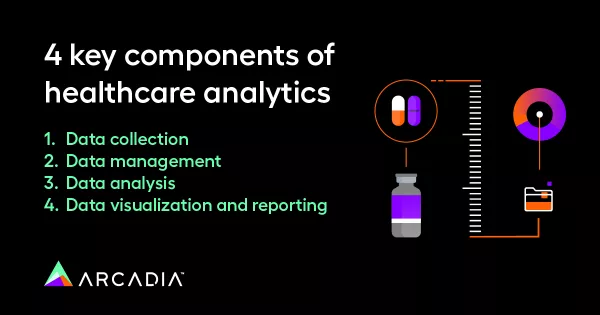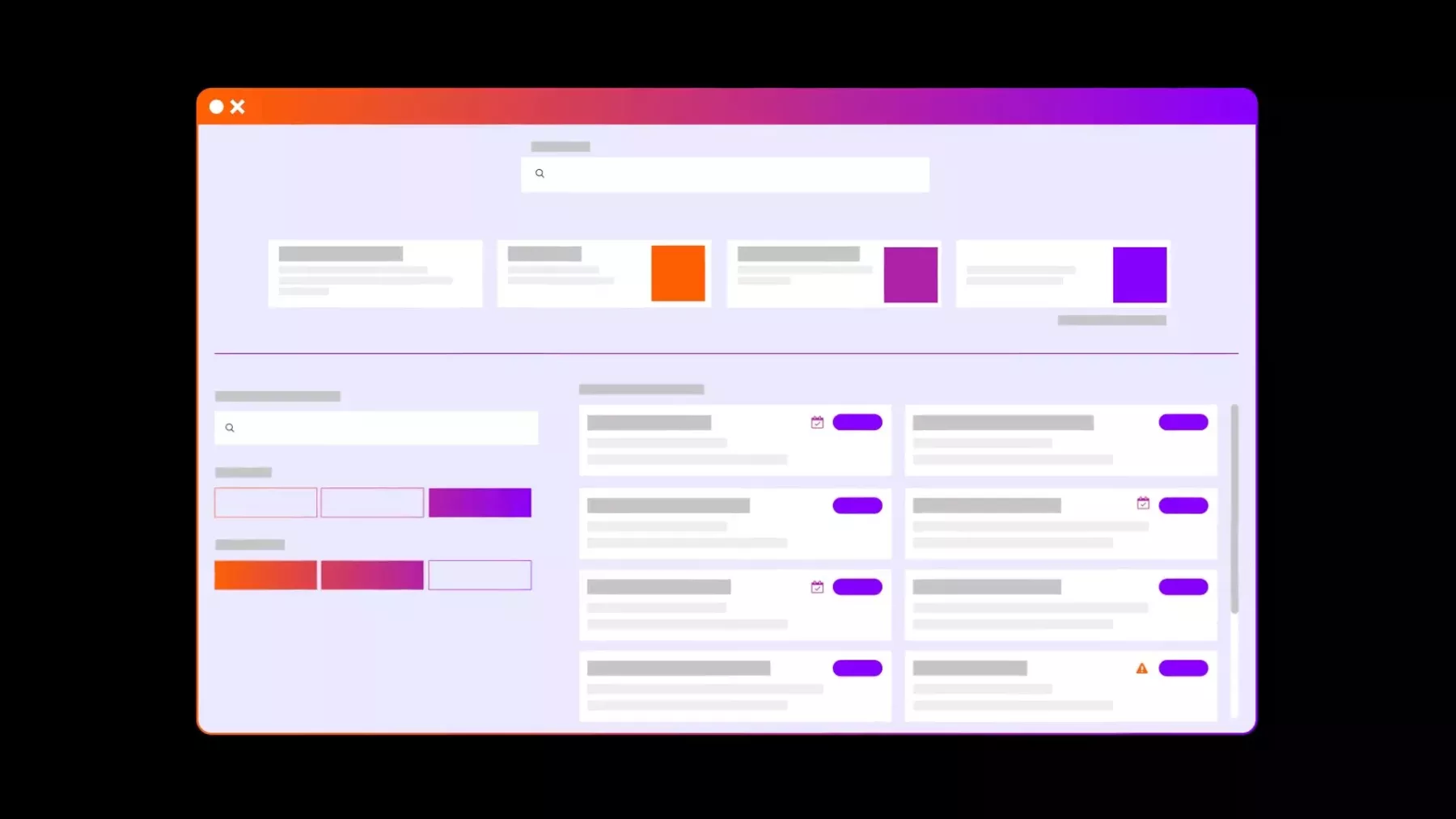Understanding healthcare analytics: The definitive FAQ guide
With the increasing digitization of healthcare records and the growing complexity of medical data, healthcare analytics has emerged as a powerful tool for leveraging this vast amount of information.
However, questions remain about this new technology and its applications. In this guide, we’ll provide clarity by answering the following:
- What is healthcare analytics?
- What are the key components of healthcare analytics?
- What are the benefits of a robust healthcare analytics platform?
- What are the challenges of healthcare analytics implementation?
- What is the future of healthcare analytics?
Let’s explore what healthcare analytics is, its key components, benefits, challenges, and future trends.
What is healthcare analytics?
Healthcare analytics refers to the systematic use of data and statistical analysis techniques in the healthcare industry. It involves collecting, managing, analyzing, and visualizing data to derive valuable insights and make informed decisions.
By harnessing the power of healthcare analytics, organizations can uncover patterns, trends, and correlations within their data to improve patient care, operational efficiency, and financial outcomes.
What are the key components of healthcare analytics?

4 key components of healthcare analytics
1. Data collection
In healthcare analytics, data collection is a crucial process that involves gathering various types of information, including patient records, claims data, clinical trials, and medical research. High-quality and comprehensive data is vital for accurate analysis and meaningful results. Robust data collection processes ensure that the data collected is relevant, reliable, and representative of the patient population or the specific focus of the analysis.
2. Data management
Effective data management is essential to ensure the accuracy, security, and accessibility of healthcare data. It involves techniques such as data cleansing, integration, and storage to organize and maintain the data in a structured manner. Additionally, data privacy and security considerations are paramount in healthcare analytics to protect sensitive patient information and comply with privacy regulations such as HIPAA (Health Insurance Portability and Accountability Act).
3. Data analysis
Data analysis forms the core of healthcare analytics. Statistical methods and techniques, including descriptive, predictive, and prescriptive analytics, are applied to uncover meaningful insights from the collected data.
Descriptive analytics summarizes and describes historical data, while predictive analytics uses past patterns to forecast future outcomes. Prescriptive analytics provides actionable recommendations to guide decision-making based on the analysis results. These analytical approaches enable healthcare professionals to better understand patient populations, identify risk factors, predict disease progression, and optimize treatment plans.
4. Data visualization and reporting
Presenting data in a visually appealing and understandable format is critical to effectively communicate insights derived from healthcare analytics. Data visualization tools and techniques help transform complex data sets into intuitive charts, graphs, and dashboards. These visual representations enhance comprehension and facilitate decision-making for healthcare providers, administrators, and stakeholders.
What are the benefits of a robust healthcare analytics platform?
A robust healthcare analytics platform can streamline and automate data collection, management, analysis, visualization, and reporting. With these tools, healthcare leaders can improve overall performance in care delivery and operational efficiency in three key areas.
Clinical decision support
Healthcare analytics plays a vital role in assisting clinical decision-making. By integrating patient data, medical research, and evidence-based guidelines, healthcare professionals can access real-time insights to make informed treatment decisions. Clinical decision support systems leverage healthcare analytics to provide personalized recommendations, alert healthcare providers about potential adverse events, and improve patient outcomes.
Population health management
Healthcare analytics enables organizations to gain a holistic view of population health, allowing them to identify at-risk individuals and design targeted interventions. By analyzing population-level data, healthcare professionals can detect disease trends, monitor public health concerns, and develop strategies for preventive care and health promotion initiatives. Population health management programs supported by healthcare analytics have the potential to improve overall health outcomes and reduce healthcare costs.
Operational efficiency and cost optimization
Healthcare analytics offers insights that can enhance operational efficiency and optimize costs. By analyzing data related to resource allocation, supply chain management, and financial planning, healthcare organizations can make data-driven decisions to improve workflows, reduce waste, and maximize the utilization of resources. For example, analytics can identify bottlenecks in patient flow, optimize staffing levels, and streamline inventory management, ultimately leading to improved patient experiences and substantial cost savings.
Additionally, providers can work with analytics companies to streamline data aggregation and report-building. Beneficial partnerships deliver high-quality insights at high speeds, enabling providers to increase efficiency and reduce staff workload.
What are the challenges of healthcare analytics implementation?
Data privacy and security
Data privacy and security are critical concerns in healthcare analytics. Patient data is highly sensitive, and healthcare organizations must adhere to strict regulations to protect patient confidentiality. Privacy regulations, such as HIPAA, dictate how healthcare data should be handled, stored, and shared. Robust security measures, including encryption, access controls, and regular audits, must be in place to safeguard patient information and maintain trust in healthcare analytics initiatives.
Data quality and interoperability
Data quality and interoperability pose significant challenges in healthcare analytics. Data accuracy, completeness, and consistency are essential for reliable analysis and meaningful insights. However, healthcare data often originates from various sources, such as electronic health records, laboratory systems, and wearable devices, and may have inconsistencies or duplications. Data integration and standardization efforts are necessary to ensure interoperability and enable seamless data exchange between different systems and stakeholders.
Ethical use of data
The ethical use of data is a crucial consideration in healthcare analytics. Issues such as informed consent, data ownership, and algorithmic bias need to be addressed to ensure fairness, transparency, and accountability.
What is the future of healthcare analytics?
As technology advances, several emerging trends are shaping the future of healthcare analytics. Predictive modeling, natural language processing, and computer vision techniques are revolutionizing healthcare analytics by extracting valuable insights from unstructured data sources, such as clinical notes and medical images. Machine learning and artificial intelligence (AI) are playing increasingly significant roles in data analysis, enabling more accurate predictions and personalized recommendations.
Emerging from these events is the data lakehouse, a new combination of two technical methodologies for database architecture—a data lake and a data warehouse. This solution enables users to get the flexibility associated with vast amounts of data with the reliable organizational structure of a warehouse.
The benefits of a healthcare data lakehouse are direct results of its user capacity and real-time data accessibility which include:
- Near limitless concurrency
- Diverse data access
- Rapid turnaround and recovery
- Empowered operations
- Adaptable data sourcing
- Instantaneous reporting
- Granular data distribution
- Enhanced support operations
- Increased innovation
As a flexible data platform, the data lakehouse leverages generative AI and accelerators to propel your organization forward. Explore how Arcadia’s future-forward solution can deliver results across the care continuum.
Harness the power of healthcare analytics
Healthcare analytics is revolutionizing the healthcare industry by harnessing the power of data to drive informed decision-making, improve patient outcomes, and optimize operational efficiency. Through effective data collection, management, analysis, and visualization, healthcare organizations can unlock valuable insights, ranging from clinical decision support and care management to fraud detection and cost optimization. As technology continues to evolve, the future of healthcare analytics holds immense promise in transforming healthcare delivery and ultimately improving the well-being of individuals and populations alike.
Arcadia’s healthcare analytics platform transforms diverse data into a unified fabric. Top payers and providers use Arcadia to get insights, deliver care, and create best-in-class healthcare experiences.

